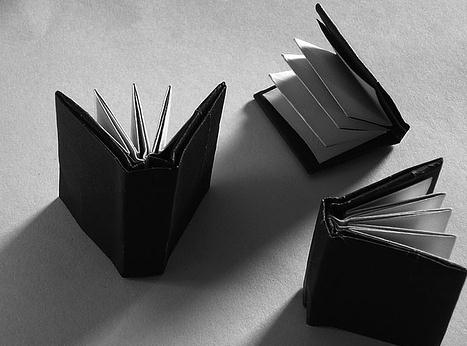“麦克白”堕落
时间:2022-10-25 20:40:05 来源:千叶帆 本文已影响人
下面是小编为大家整理的“麦克白”堕落,供大家参考。希望对大家写作有帮助!

“麦克白”的堕落5篇
“麦克白”的堕落篇1
关于《麦克白》的一些阅读笔记
1
一般公认的莎士比亚四大悲剧是:《麦克白》、《奥塞罗》、《哈姆雷特》以及《李尔王》。作为莎士比亚最杰出的乃至于文艺复兴时期最杰出的四部悲剧,这四部一直被认为是悲剧的圭臬。
莎士比亚的伟大之处,也许并不在于他恰如其分的体现了文艺复兴时代的人文主义精神——在这一点上,他做得似乎不比拉伯雷、薄加丘这样不乏叛逆性以及戏噱精神的大师更好——而在于他对于一种文体的建立和构造。莎士比亚式的文体是宏大的、杰出的、体系化的,具有等同于史诗的铺陈式体制以及宏篇巨制式的结构。这种文体的产生使文艺复兴时代从思想、内容到形式都足以与之前时代的经典分庭抗礼。从这个意义上来说,莎士比亚为欧洲的飞翔增加了砝码和底蕴,并成为了新的经典。至于其对英国语言文学的不朽贡献之类,则如恒河沙数,不必多提。
2
在阅读莎士比亚的时候,我经常会产生疑窦:在那样铺陈华丽的文体与句子之下,我很难相信我在阅读的确实是悲剧。也许是对于悲剧的认识不同。我以为的悲剧,总是如索福克勒斯那样的,具有崇高、简洁而庄严特征的文体。莎士比亚华丽得近于煊赫的文体对于悲剧本身的影响,我心中无数。从这个角度而言,我之所以对《麦克白》更为看重,也许是因为其更“纯粹”的具有悲剧特性。
《麦克白》这一部有别于另三部不朽悲剧的地方在于:《奥塞罗》中悲剧的成因是伊阿古这个小人的挑拨和奥塞罗本身性格的缺陷;
《李尔王》与《哈姆雷特》的结局也是基于人性本身的弱点:前者对女儿的热爱,后者的优柔寡断与忧郁多思。相对而言,《麦克白》中悲剧的产生,虽则依赖于麦克白本人的野心与其妻子恶意的怂恿,但是却更多体现了天命的因素。这种并非将悲剧原因归结为主观错误而更多确知为悲剧宿命的方式,有着浓郁的古希腊悲剧色彩。
3
古希腊具有象征意义的著名悲剧,如《普罗米修斯》、《俄底埔斯王》等,都具有一个鲜明的特征:造成悲剧的因素并非个人的主观错误或者客观情况的干扰,而是天命的不公。普罗米修斯中作为天神的宙斯暴虐而昏庸,造成了崇高的悲剧。俄底埔斯王则完全受制于残酷的命运,无论如何挣扎,却还是陷入了命运的泥淖。在这些故事中,主角的崇高伟大与命运(或命运操纵者)的残忍与恶毒形成了鲜明的对比。这种更广义的无可奈何和无能为力,使得希腊悲剧拥有了直指命运以及人类宿命本身的崇高性。
4
麦克白的野心,来源于仙女们的怂恿。那些仙女们用游戏的——她们可曾想过残忍的后果?——姿态来挑逗起麦克白的野心,鼓励他杀死自己的国王。而当麦克白探询国家未来的时候,他们给出了三种看似不可能的条件。这是一种狡黠而近乎于恶毒的玩笑。考虑到这种玩笑是以这样一幕悲剧为结局的,我能够相信的是,《麦克白》中仙女的谶语,具有了与希腊悲剧中天命一样的意义。如果忘却麦克白妻子的恶毒,他本人的野心,我们可以发觉,这样一个剧本中起到主导作用的其实还是恶意的,戏剧性的,玩笑般的天命。
我能够想象的,麦克白面对薛华特时的绝望。当一切的谶语都玩笑般成为现实之时,他的信仰全数崩溃。这种全面性的毁灭使他被钉上了任兀鹰啄咬的可悲处境。他已经一无所有。而这一切的开始,仅仅是玩笑般的命运。不要告诉我麦克白夫人的效用。如果没有仙女,她是徒然无用的。
5
麦克白的死亡具有的社会意义,是传达了莎士比亚厌恶将军拥权杀王这样的犯上之举的思维。但这样的主题比之于麦克白具有希腊精神的纯洁崇高悲剧思想,显然比较浅薄。我现在重复阅读着《麦克白》,并且为这个悲哀的、邪恶的主人公感到悲哀。一如希腊悲剧中那些纯粹的悲剧主角。他们的毁灭,并非由于他们的不杰出,而仅仅是,仅仅是,那些将他们玩弄于股掌之上的命运。
“麦克白”的堕落篇2
麦克白读后心得_麦克白读书笔记5篇
非淡薄无以明志,非宁静无以致远。大千的世界,看淡一些名利,生活会轻松快乐的。下面是收集推荐的麦克白读后心得,欢迎阅读参考。
精选 麦克白读后心得 (一)
《麦克白》被列为沙翁四大悲剧之一。在看《麦克白》的时候,本人自然而然地带着探询到底哪里体现悲剧的成分。或许,事先对沙翁的所谓的悲剧期望过高,看完后,了无悲痛怜惜的情绪。是我麻木了呢?还是没有体会到《麦克白》的悲剧成分。于是乎,看完后并没有立马写此剧的读后感。而是在空闲的时间里想想故事情节,想想沙翁笔下的主人公麦克白是如何成为悲剧的主角的。
即使是现在的我,还没深切感受到悲剧,或者悲剧的思想。那么,便让我在对《麦克白》的些许感悟以及边写边想的过程,来好好体会其为何能够成为悲剧,还是沙翁笔下四大悲剧之一。
请允许我以带找寻悲剧色彩为线索,分析我心中所疑惑的麦克白。
首先,《麦克白》的故事梗概是这样的:作为男主人公的麦克白是苏格兰军中的一名大将。在大败叛徒的归途中,听信三位女巫的模糊的预言,随之而来的被封为考特爵士的事件得以应验女巫的预言。麦克白并没有感恩戴德,而是为了最高的预言——未来的君王,而起了歹心,并在麦克白夫人的怂恿下,合谋把苏格兰的国王邓肯刺杀于麦克白的城堡里,并稼祸给守卫国王的两名近身侍卫。当国王被谋杀的消息传到人们的耳中的时候,麦克白以诚挚的愤怒杀死了那两名冤枉的侍卫。在国王被刺杀的元凶还没找到的时候,国王邓肯的两名儿子马尔康以及道纳本为了自身安全分别逃亡英格兰和爱尔兰。不明真相的苏格兰贵族们,却给他两兄弟以谋杀国王的嫌疑定论。不久,为了巩固国王的地位,麦克白暗派了三名刺客,不惜代价地杀害了曾经出生入死的战友,同是苏格兰大将的班柯。与班柯同行的儿子弗里恩斯借着夜色成功套离了暗杀。
不久,麦克白的所干所为得以败露,引起贵族们的内部意见不一。与此同时,另一方面苏格兰国王邓肯的两名儿子马尔康、道纳本以及班柯的儿子弗里恩斯连同英国军中大将西华德和其子小西华德带领一万精兵征讨麦克白。最终以麦克白夫人自杀,麦克白首级被取而拉下帷幕。
“麦克白”的堕落篇3
浅谈邓肯在麦克白悲剧中的作用
摘要:莎士比亚剧作《麦克白》中主人公麦克白的人生起伏及最终的悲剧结局向为学界重视,经过一个学期的学习,本文试从一个侧面―――邓肯这个人物身上,探究造成麦克白悲剧的外在因素。
关键词:邓肯,麦克白,野心和良心
《麦克白》是莎士比亚四大悲剧中篇幅最短的一部作品,同时其版本考究和部分内容真实作者的研究一直是悬而未决的学术难题。然而这并不妨碍这部名著以血腥残忍的麦克白的起伏和最终灭亡,为我们塑造出了经典的莎氏悲剧。在恐惧的气氛中,我们看到了麦克白的结局,获得了道义上的满足和疏泄。而且,作者通过对剧中人物的精心刻画,使我们触摸到的是一个个有血有肉的鲜活人物。这进一步增加了我们对于人性复杂性的理解,使得我们能够深入到主人公麦克白的内心深处,同他一起感受野心与道义的碰撞所带来的激烈的内心斗争。
麦克白的最终堕落,根本原因毫无疑问是其自身的野心膨胀无法得到满足而造成的。但是我们不能忽视也有方方面面的外在的和客观的因素,最终导致这种野心不受束缚地爆发。麦克白夫人,女巫,班柯等人的作用学术界多有论及,本文则将对于邓肯这个人物进行粗浅的讨论。目的是从另一个侧面说明,邓肯这个首先成为麦克白野心牺牲品的人物,同时也是造成麦克白悲剧的外部原因之一。正是邓肯自身的特色决定了,他不但是麦克白悲剧的催化剂,而且也间接导致了其自己的厄运。
一、仁慈的君王?
长期以来,莎士比亚戏剧的研究者大多数都认为《麦克白》中的国王邓肯是一个仁慈的君王。麦克白的堕落乃由刺杀邓肯并嫁祸于卫兵起始,并最终走向丧心病狂地暗害班柯和麦克达夫的家人。但是,通观整个剧本,对于邓肯直接描述不甚详尽而且其中并未体现出他具有这种特点。几处对于邓肯的评价都出自于别人之口。由于下面我们即将讨论的原因,单凭这些就断定邓肯具有仁慈的特点似乎不够完备。另外,由于年代久远和历史变迁的原因,今天我们很难准确再现作者当时当日创作的目的和具体细节,作品的社会背景和时代背景也仅仅是有助于我们做出粗略的概括或者是假想式的论断。任何断言现在看来,证据都不够十分充分。这里,笔者也仅是试图通过现有的线索和资料,提出一些个人的或许过于武断的想法。
根据《麦克白》的版本考据,这个剧本的最初来源是贺林西德的编年史。而编年史中所描述的历史上真实的国王邓肯却并不是一个仁爱贤德的国君。以此为论据评价剧中的邓肯也是同样的昏聩当然失之偏颇,因为艺术的人物当然不能够同真实生活中的人物等同。但仅仅通过《麦克白》剧中几处假别人之口描述的所谓邓肯的“仁慈”来断定作者在剧中塑造了一个圣明的国王是否也同样不足以令人信服呢?众所周知,非常重要的一个背景是此剧曾经作为供詹姆斯一世观赏的剧目,在宫廷进行过演出。而无论是历史上还是作品中反映出来的人文主义者莎士比亚却对于当时的时弊多有针砭;
而我们今日对于詹姆斯一世的历史评价也无用赘言了。当一个以民生为关注对象的伟大作家不得不面对一个以君主专制和独裁著称的君王时,对于邓肯这个象征君权和王权的人物进行一番美化无可厚非,但是很难想象在内心深处莎士比亚会对于这个人物完全的颂赞和褒扬。表现在剧中,我们可以看到,邓肯并不是是一个完美的人物。如果说作者在特意的将邓肯仁慈化,那么这种工作和其产生的效果也是保持在极为有限的范围之内的。下面我们将从文本出发,对于邓肯之“仁慈”进行考察。
1、剧目的开始,在战乱中为邓肯器重的考道伯爵叛变。而麦克白将考道擒获后,邓肯决定处斩考道。并且一再催问行刑的结果:
考道的死刑执行了吗。派去行刑的人还没有回来?
——1幕4景1行
从上述的话语中我们不难看出,邓肯这个人物至少不是优柔寡断或者对敌人心慈手软。这短短的一句对白恰好明确的显示出了邓肯对于背弃自己的人穷追不舍的一面。在欢庆叛乱平息和战斗获胜的时刻,他的思绪并不像一般的胜利者那样更多的沉浸在喜悦中或者关注收束战果和抚慰百姓,而是一刻也没有忘记用斩首这种最为严厉的方式惩治背叛他的人。剪除异己的急迫心情跃然纸上。在涉及邓肯比较密集的第一场,我们会看到,他的这种急躁并不是偶一为之或单独存在的一种性格特征。这种行动所表达的,正是邓肯这个人物贯穿始终的整体个性及其对于王位的危机感和多疑。
2、
若非他睡时很像我的父亲,我自己就下手了。
——2幕2景10-11行
上面这句话常常被用来引述以证明麦克白夫人的天良未泯。值得注意的是,麦克白夫人的这句话并不能说明邓肯的状态。这时的麦克白夫人,内心深处尚未完全丧失良知。所以当她看到一位熟睡中的老翁时,这种安宁祥和的场景对比于她此时卑鄙的目的,使得她不自禁的感觉到难以对于这样一个进入甜美梦乡的老人下其毒手。所谓“很像我的父亲”只是麦克白夫人此时的感觉,却不能够作为评判邓肯人格特征的依据。
3、如果上面夫人的话还只是莫须有的证据的话,麦克白的两处自白则被认为是直接的证据,常常被用来证明邓肯的仁慈:
况且,这邓肯平日为人如此的谦逊,从政又如此的廉明,他的美德将大声疾呼像天使一般来抗议这穷凶极恶的毒手;
并且恻隐心,有如一个跨风而行的裸体的新生的婴孩,又如天上的御风而行的天使,将要把这段惨事吹到人人的眼里,以至于泪雨淹溺了狂风。
——1幕7景11-16行
果真如此,我岂不是为了班柯的子孙而坏了良心;
岂不是为他们而杀死了仁慈的邓肯;
——3幕1景43-44行
连作恶多端的麦克白自己都承认邓肯的仁慈,那应该是毫无疑问了!但是,这样推断是否过于草率了呢?我们不能不关注这样一个事实:麦克白在这两处的心理状态极其不稳定,使我们不得不对他此时的判断的可信性和准确性划个问号。这里引用的两段是剧中仅有的两处麦克白对于邓肯的评判。而这两处引文当中有两个共同点值得引起我们注意。首先,我们不难发现这两处都是麦克白在下定决心要进行屠杀之前(只是屠杀的对象不同而已),良心和野心最后交锋的阶段。其次,这两段均是麦克白的独白。
莎氏如此的安排应该不是无心而为。从整个作品来看,麦克白的最终堕落并不是起始于刺杀国王,而是起始于暗杀班柯。因为作为悲剧主人公的麦克白是在暗杀了班柯以后才真正完全丧失了残余的良知,绝决的走上了不归路,而且不再像此前那样犹豫寡决。而在两次杀戮之前,麦克白却经历了极为艰难的抉择和痛苦的内心斗争。上述引文可以看作麦克白此时内心深处野心和良心互博的最好诠释。一方面是争夺王权和维持王权稳定的野心驱使他逐渐消弭了基本的道义感,另一方面是未完全消失的道义感在拼命抗拒权力的诱惑但却逐渐衰微。麦克白的恐惧感和罪恶感正表明了在天枰的两边徘徊的痛苦。如果说此时的麦克白正在试图突破“超我”(superego)的牢笼,无所顾忌的释放自己对于“伊特”(id)的贪婪追逐的话,邓肯这个集父权和王权于一身的角色恰好处于麦克白困惑的中心所在。亲缘和君臣的关系都像挣不脱的网络一样束缚了麦克白的野心,使他不得不考虑重重,在痛苦中思量突破这种社会习规所可能导致的后果。而这番“颂词”作为独白而不是同其夫人的对话出现,作者的意图是表明这仅仅是麦克白此时此刻的内心的顾虑而已,不能作为真正的陈述来表达麦克白(当然更不是作者自己)对于邓肯的价值判断。
综上所述,笔者窃以为,剧本中几处他人论及邓肯的场面及邓肯自己的言行均不足以说明其具有仁慈宽厚的性格特征。正因为如此,就不能将所谓的仁慈作为理由来为麦克白的罪状添加一笔糊涂帐。别林斯基说:“麦克白是一个具有深刻而强大灵魂的坏蛋,他唤起的不是反感而是同情。”作者行文当中有意无意之间体现出来的深层心理,也不希望我们将邓肯的所谓仁慈作为反感麦克白的理由。换个角度思考,通过邓肯的“仁慈”来解读《麦克白》这部作品无疑会降低麦克白本身心理斗争(也就是伦理道德层面上人性善与恶的斗争)带来的戏剧效果和给我们的启示,对于作品主旨在某种程度上其实是一种误读。
二、贤明的君王?
关于邓肯在位期间的政治是否昌明,其实根据文本的考察,我们就会发现:作者虽然着墨不多,但是通过全剧中邓肯的言行和旁人的指涉,答案已经不言自明。
1、作品先是通过一个不知名的贵族之口提到了他自己关于从政目的和价值取向的描述:
有了这些救兵——再有了上帝的允许——我们便可以再安心饮食睡眠,筵席之中便可不再有凶刀闪烁,可以自由的忠君受禄;
这一切是我们现在求之不得的。
——3幕6景18-21行
另外在玛尔孔因怀疑而试探麦克达夫一场戏中,麦克达夫也在两处提到了自己关于国君品行的评价:
恣情声色的确是一种暴行;
这会使王位早虚,使许多国王败倒。但是仍无须迟疑去享有你应得的一切;
你尽可私下里放纵取乐;
而仍做出有节制的样子,便可蒙蔽世人了。我们有的是乐意的女人;
多的是闻风而来的献身富贵的女人,只怕你未必有饿鹰一般的胃口把她们都吞下去呢。
——4幕3景48-52行
这贪欲比起那酷暑一般的淫欲,是更根深蒂固的,有更毒恶的根苗,曾经是我们的国王致死之刀:但是不必疑虑;
苏格兰有的是财富,单是你分内所有的就够满足你的欲望;
有其余的优点搭衬着,这一切是都可以容忍的。
——4幕3景58-61行
以上三段,就是邓肯时期作为大臣们对于个人生活目的和国君应有品德的态度。如果说那个不知名的贵族表达的意见还不足以说明真正的国之栋梁的真实想法的话,麦克达夫的话则明确无误的显露了当权者的主流意识形态。
普通大臣只要做到对上负责就可以饱食终日、无所事事,只求得钵满盆满,纵情饮筵,复无所求。麦克达夫的评价则更为触目惊心,相信多数读者读到这里都会有一种审美期待的挫折感。难道这就是以贤德机敏著称的麦克达夫对于合格国君的要求吗?淫欲和贪欲于国君而言似乎只是疥癣之痛而无关大雅。要女人吗?要金银吗?只要是国土范围内的,任由国王享用而不必有任何的顾虑。只要不因为太过露骨而激起民变,在统治阶级内部这本来就是正常不过而不是什么丑陋的行为。我们不禁要问:什么才有可能是“其余的优点”呢?一个如此穷奢极侈的国王还可能有其他的什么优点呢?
在邓肯王朝的君臣中,麦克达夫被刻画成了智勇兼备的一个主要的人物,并最终战胜了不可一世的麦克白。通过他的口传达出来的这样一种从政观念应该可以看作是诸君臣的一种具有代表性的意见,而且是一种被当时的政客认为是英明的政见。这就可以见出当时的君主和上流社会怎样为官治国,而在这种意识形态主导之下的国家的民生状况也就不言而喻了。所谓上行下效,正是因为的国君的治国之道存在严重的缺欠才会导致臣下如此的政治观点。有趣的是紧接着上文,麦克达夫道出了全剧中唯一的一次有关邓肯政治能力的直接论述:
你的父王是个最贤明的君主;
——4幕3景71-72行
前文是对于所谓合格君主的描述,而这里则称,邓肯正是一位“贤明”的君主。莎士比亚在这里仿佛是在向我们暗示,邓肯在这种评价标准下还是可以“称职”的。
2、前面谈到的都是通过别人的话语而反映出来的邓肯其人。而在第一幕中邓肯自己的言行则更加直接和无误的展示出了这位“称职”的君王治国的方略。特别引起我们兴趣的是邓肯同麦克白在剧中首次见面后,邓肯的言行:
你立功太迅速了,非任何酬报所能超越;
我反倒愿你功劳小一些了,以便给你相当的慰劳与报酬!我现在只能说,你应得的报酬已经多于我所能给的了。
——1幕4景10-12行
我的喜悦是太丰富,都充溢而不能自制了,要隐于悲哀之泪里去。儿子们,亲族们,伯爵们,以及你们近臣你们听命,我将要立长子玛尔孔为嗣,我现封他为肯伯兰亲王;
——1幕4景21-23行
按照历史的记载,在当时那样一种部族争斗激烈,王权更替频繁的时期,王位的更迭并不局限于嫡传子嗣,而是从众多有血缘关系的后代中做出选择。按照这种传统和当时卓著的战功来推断,麦克白是极有希望成为王位继承人的。处于以上因素的考虑,麦克白的野心可以说是事出有因。怀有野心和对于权力的欲望本来是很正常的事情。而按照当时的状况作为王族的一员,同时又在战争关键时刻建立功勋的麦克白当然希望得到应有的报偿。说到这里,笔者认为第一幕第三景当中女巫的对于麦克白将来的所谓预言其实也正是麦克白心中所想的反映而已。而在他的心里,这种报偿已经是王位以外的东西无法替代的。麦克白最初的想法是通过自己的表现,自然而然的获得国王的垂青传位给自己,通过合法的手段满足自己的野心和欲望,这一点已经通过下面的引文明白无误的传达了出来:
要发生什么就发生什么,最多事的日子总会慢慢的度过。
——1幕3景118-119行
对于麦克白的这种野心或者说企图,邓肯并未觉察,或者即便觉察也不予理睬。而从麦克白的角度来看,自己不但没有得到王位,国王竟然都没有大加封赏,这已经无异于鸟尽弓藏,兔死狗烹的行为;
更有甚者,邓肯在很突然的情况下,宣布立玛尔孔为储君。功勋没有受到嘉奖,本来抱有的希望也突然之间破灭,邓肯的这两个举动造成的双重效果导致的是对麦克白原有希望的双重打击。这样一来,麦克白幻想通过合法手段登上王位的希望完全落空。在这个时候,野心无法得到满足的怨怒终于冲冠而起。野心无法通过正常手段得到满足,麦克白只有通过赌博式的非正常途径来试图实现自己的梦想。如果我们搁置麦克白本身的种种倒行逆施,可以说正是因为邓肯自己在处理这件事情上的不当之处直接导致麦克白最终选择了铤而走险。主观方面固然是麦克白自己的道德感无法束缚野心的膨胀而引发了个人的悲剧,但是直接诱发刺杀邓肯的外部因素中,我们同样不能忽略的是邓肯自己的处置不当。所以戴镏龄先生称邓肯其实是麦克白的“教唆犯”。
另外通过整个剧本中邓肯任用人才的考察,很容易发现邓肯还极为缺欠识人用人的能力。在所有邓肯部下的重要大臣中,真正做到忠君不二的只有麦克达夫一个而已。另外看似忠良的班柯其实并不是象他表面上所表现的那样忠诚,限于篇幅的原因,不在这里进行详细的阐述。
邓肯的糊涂也体现在他下面的话中,以下的场景出现在邓肯刚刚抵达麦克白城堡的时候:
这座城堡的位置很好;
清爽的空气使得我们感觉很舒适的
——1幕6景1行
在当时历史条件下,邓肯对于麦克白城堡的临幸无疑是对于臣子的一种极高的恩宠。但是具体到这里,由邓肯对于麦克白城堡的称赞,很明显的可以知道,他对于麦克白的野心毫无觉察。如果说不封赏麦克白更没有宣布他为王位继承人是麦克白恶行的直接诱因的话,邓肯在全无觉察的情况下的这种示恩的举动则给麦克白提供了绝无仅有的作恶的机会。换个角度,如果说邓肯已经意识到麦克白的居心,而到臣子家中做客是一种安抚的行动的话,这种安抚也远远不能够平息麦克白此时由野心招致的杀伐的罪恶念头。
作为国君,邓肯没有能够体察到,未来君权走向问题十分敏感而且一旦处理不当,很有可能导致祸乱。无论是哪一种情况,邓肯在这里都犯了判断性的错误。他自以为一点没有实质性的嘉勉就可以令浴血奋战的将领满足。而事实上,从仓促的册立未来的君王到轻率的驾临麦克白城堡,他客观上不仅为麦克白提供了杀人的动机也提供了绝好的杀人机会。具有讽刺意味的是,被杀的人正是邓肯自己而他却毫不知情。
小 结
本文重点讨论了学习《麦克白》之后对于邓肯这个人物的一点看法。目的并不是在于通过对于他的分析为麦克白辨白或者说正名。毕竟麦克白的悲剧的根本原因还在于其自身。笔者只想说明,麦克白悲剧的外部因素当中不可忽视邓肯其人的作用。我们不能够通过简单推理断然因为邓肯的仁慈贤明从而为麦克白的凶残嗜杀增添另一种罪状。就算邓肯真是如此,也不能够因为此而作为对于麦克白的控诉。麦克白的悲剧重点在于其自身在野心和良心的对抗中,贪欲占了上峰而不可遏制;
麦克白的可恶和可悲之处在于人性当中的邪恶压制了仁爱;
屠戮一个仁慈贤德的邓肯或是一个庸庸碌碌的邓肯区别并不能改变麦克白悲剧的成立与否。从更好的描述悲剧过程和制造悲剧效果看,邓肯非但不应该是个天可怜见的人物;
恰恰相反,只有通过种种外部因素(包括邓肯的因素在内)的刺激,麦克白自身的固有的贪念才会更加迅速和猛烈的爆发。从这层意义上看,邓肯正是(或者说至少是其中之一)加速麦克白走向贪婪极至的一味催化剂。部分的因了他的作用,麦克白的野心才没有得到更好的控制,最终走上失去理智的疯狂的不归路;
也正是因了邓肯,才使我们看到了一个更加丰满的麦克白,看到了普遍存在于人们内心深处的心理斗争和善恶交锋,看到了一出精彩的莎士比亚悲剧。
参考文献
【1】戴镏龄. 关于邓肯这个人物的探讨——读《麦克白》杂记 【A】.中国莎士比亚研究会. 莎士比亚研究创刊号【C】.浙江: 浙江人民出版社,1983.243-253.
【2】周珏良. 《麦克白》的悲剧效果 【A】.中国莎士比亚研究会. 莎士比亚研究创刊号【C】. 浙江: 浙江人民出版社,1983.253-271.
【3】赫士列特. 莎士比亚戏剧人物论——《麦克白》【A】.杨周翰. 莎士比亚评论汇编(上)【C】.北京:中国社会科学出版社, 1979.196-205.
“麦克白”的堕落篇4
Macbeth
A tale rewritten by Charles Lamb
When Duncan the Meek reigned king of Scotland, there lived a great thane, or lord, called Macbeth. This Macbeth was a near kinsman to the king, and in great esteem at court for his valour and conduct in the wars; an example of which he had lately given, in defeating a rebel army assisted by the troops of Norway in terrible numbers.
The two Scottish generals, Macbeth and Banquo, returning victorious from this great battle, their way lay over a blasted heath, where they were stopped by the strange appearance of three figures like women, except that they had beards, and their withered skins and wild attire made them look not like any earthly creatures. Macbeth first addressed them, when they, seemingly offended, laid each one her choppy finger upon her skinny lips, in token of silence; and the first of them saluted Macbeth with the title of thane of Glamis. The general was not a little startled to find himself known by such creatures; but how much more, when the second of them followed up that salute by giving him the title of thane of Cawdor, to which honour he had no pretensions; and again the third bid him "All hail! king that shalt be hereafter!" Such a prophetic greeting might well amaze him, who knew that while the king"s sons lived he could not hope to succeed to the throne. Then turning to Banquo, they pronounced him, in a sort of riddling terms, to be lesser than Macbeth and greater! not so happy, but much happier! and prophesied that though he should never reign, yet his sons after him should be kings in Scotland. They then turned into air, and vanished: by which the generals knew them to be the weird sisters, or witches.
While they stood pondering on the strangeness of this adventure, there arrived certain messengers from the king, who were empowered by him to confer upon Macbeth the dignity of thane of Cawdor: an event so miraculously corresponding with the prediction of the witches astonished Macbeth, and he stood wrapped in amazement, unable to make reply to the messengers; and in that point of time swelling hopes arose in his mind that the prediction of the third witch might in like manner have its accomplishment, and that he should one day reign king in Scotland.
Turning to Banquo, he said: "Do you not hope that your children shall be kings, when what the witches promised to me has so wonderfully come to pass?" "That hope," answered the general, "might enkindle you to aim at the throne; but oftentimes these ministers of darkness tell us truths in little things, to betray us into deeds of greatest consequence."
But the wicked suggestions of the witches had sunk too deep into the mind of Macbeth to allow him to attend to the warnings of the good Banquo. From that time he bent all his thoughts how to compass the throne of Scotland.
Macbeth had a wife, to whom he communicated the strange prediction of the weird sisters, and its partial accomplishment. She was a bad, ambitious woman, and so as her husband and herself could arrive at greatness, she cared not much by what means. She spurred on the reluctant purpose of Macbeth, who felt compunction at the thoughts of blood, and did not cease to represent the murder of the king as a step absolutely necessary to the fulfilment of the flattering prophecy.
It happened at this time that the king, who out of his royal condescension would oftentimes visit his principal nobility upon gracious terms, came to Macbeth"s house, attended by his two sons, Malcolm and Donalbain, and a numerous train of thanes and attendants, the more to honour Macbeth for the triumphal success of his wars.
The castle of Macbeth was pleasantly situated, and the air about it was sweet and wholesome, which appeared by the nests which the martlet, or swallow, had built under all the jutting friezes and buttresses of the building, wherever it found a place of advantage; for where those birds most breed and haunt, the air is observed to be delicate. The king entered well-pleased with the place, and not less so with the attentions and respect of his honoured hostess, lady Macbeth, who had the art of covering treacherous purposes with smiles; and could look like the innocent flower, while she was indeed the serpent under it.
The king being tired with his journey, went early to bed, and in his state-room two grooms of his chamber (as was the custom) slept beside him. He had been unusually pleased with his reception, and had made presents before he retired to his principal officers; and among the rest, had sent a rich diamond to lady Macbeth, greeting her by the name of his most kind hostess.
Now was the middle of night, when over half the world nature seems dead, and wicked dreams abuse men"s minds asleep, and none but the wolf and the murderer is abroad. This was the time when lady Macbeth waked to plot the murder of the king. She would not have undertaken a deed so abhorrent to her sex, but that she feared her husband"s nature, that it was too full of the milk of human kindness, to do a contrived murder. She knew him to be ambitious, but withal to be scrupulous, and not yet prepared for that height of crime which commonly in the end accompanies inordinate ambition. She had won him to consent to the murder, but she doubted his resolution; and she feared that the natural tenderness of his disposition (more humane than her own) would come between, and defeat the purpose. So with her own hands armed with a dagger, she approached the king"s bed; having taken care to ply the grooms of his chamber so with wine, that they slept intoxicated, and careless of their charge. There lay Duncan in a sound sleep after the fatigues of his journey, and as she viewed him earnestly, there was something in his face, as he slept, which resembled her own father; and she had not the courage to proceed.
She returned to confer with her husband. His resolution had begun to stagger. He considered that there were strong reasons against the deed. In the first place, he was not only a subject, but a near kinsman to the king; and he had been his host and entertainer that day, whose duty, by the laws of hospitality, it was to shut the door against his murderers, not bear the knife himself. Then he considered how just and merciful a king this Duncan had been, how clear of offence to his subjects, how loving to his nobility, and in particular to him; that such kings are the peculiar care of Heaven, and their subjects doubly bound to revenge their deaths. Besides, by the favours of the king, Macbeth stood high in the opinion of all sorts of men, and how would those honours be stained by the reputation of so foul a murder!
In these conflicts of the mind lady Macbeth found her husband inclining to the better part, and resolving to proceed no further. But she being a woman not easily shaken from her evil purpose, began to pour in at his ears words which infused a portion of her own spirit into his mind, assigning reason upon reason why he should not shrink from what he had undertaken, how easy the deed was; how soon it would be over; and how the action of one short night would give to all their nights and days to come sovereign sway and royalty! Then she threw contempt on his change of purpose, and accused him of fickleness and cowardice; and declared that she had given suck, and knew how tender it was to love the babe that milked her; but she would, while it was smiling in her face, have plucked it from her breast, and dashed its brains out, if she had so sworn to do it, as he had sworn to perform that murder. Then she added, how practicable it was to lay the guilt of the deed upon the drunken sleepy grooms. And with the valour of her tongue she so chastised his sluggish resolutions, that he once more summoned up courage to the bloody business.
So, taking the dagger in his hand, he softly stole in the dark to the room where Duncan lay; and as he went, he thought he saw another dagger in the air, with the handle towards him, and on the blade and at the point of it drops of blood; but when he tried to grasp at it, it was nothing but air, a mere phantasm proceeding from his own hot and oppressed brain and the business he had in hand.
Getting rid of this fear, he entered the king"s room, whom he despatched with one stroke of his dagger. Just as he had done the murder, one of the grooms, who slept in the chamber, laughed in his sleep, and the other cried: "Murder," which woke them both, but they said a short prayer; one of them said: "God bless us!" and the other answered "Amen"; and addressed themselves to sleep again. Macbeth, who stood listening to them, tried to say "Amen," when the fellow said "God bless us!" but, though he had most need of a blessing, the word stuck in his throat, and he could not pronounce it.
Again he thought he heard a voice which cried: "Sleep no more: Macbeth doth murder sleep, the innocent sleep, that nourishes life." Still it cried: "Sleep no more," to all the house. "Glamis hath murdered sleep, and therefore Cawdor shall sleep no more. Macbeth shall sleep no more."
With such horrible imaginations Macbeth returned to his listening wife, who began to think he had failed of his purpose, and that the deed was somehow frustrated. He came in so distracted a state, that she reproached him with his want of firmness, and sent him to wash his hands of the blood which stained them, while she took his dagger, with purpose to stain the cheeks of the grooms with blood, to make it seem their guilt.
Morning came, and with it the discovery of the murder, which could not be concealed; and though Macbeth and his lady made great show of grief, and the proofs against the grooms (the dagger being produced against them and their faces smeared with blood) were sufficiently strong, yet the entire suspicion fell upon Macbeth, whose inducements to such a deed were so much more forcible than such poor silly grooms could be supposed to have; and Duncan"s two sons fled. Malcolm, the eldest, sought for refuge in the English court; and the youngest, Donalbain, made his escape to Ireland.
The king"s sons, who should have succeeded him, having thus vacated the throne, Macbeth as next heir was crowned king, and thus the prediction of the weird sisters was literally accomplished.
Though placed so high, Macbeth and his queen could not forget the prophecy of the weird sisters, that, though Macbeth should be king, yet not his children, but the children of Banquo, should be kings after him. The thought of this, and that they had defiled their hands with blood, and done so great crimes, only to place the posterity of Banquo upon the throne, so rankled within them, that they determined to put to death both Banquo and his son, to make void the predictions of the weird sisters, which in their own case had been so remarkably brought to pass.
For this purpose they made a great supper, to which they invited all the chief thanes; and, among the rest, with marks of particular respect, Banquo and his son Fleance were invited. The way by which Banquo was to pass to the palace at night was beset by murderers appointed by Macbeth, who stabbed Banquo; but in the scuffle Fleance escaped. From that Fleance descended a race of monarchs who afterwards filled the Scottish throne, ending with James the Sixth of Scotland and the First of England, under whom the two crowns of England and Scotland were united.
At supper, the queen, whose manners were in the highest degree affable and royal, played the hostess with a gracefulness and attention which conciliated every one present, and Macbeth discoursed freely with his thanes and nobles, saying, that all that was honourable in the country was under his roof, if he had but his good friend Banquo present, whom yet he hoped he should rather have to chide for neglect, than to lament for any mischance. Just at these words the ghost of Banquo, whom he had caused to be murdered, entered the room and placed himself on the chair which Macbeth was about to occupy. Though Macbeth was a bold man, and one that could have faced the devil without trembling, at this horrible sight his cheeks turned white with fear, and he stood quite unmanned with his eyes fixed upon the ghost. His queen and all the nobles, who saw nothing, but perceived him gazing (as they thought) upon an empty chair, took it for a fit of distraction; and she reproached him, whispering that it was but the same fancy which made him see the dagger in the air, when he was about to kill Duncan. But Macbeth continued to see the ghost, and gave no heed to all they could say, while he addressed it with distracted words, yet so significant, that his queen, fearing the dreadful secret would be disclosed, in great haste dismissed the guests, excusing the infirmity of Macbeth as a disorder he was often troubled with.
To such dreadful fancies Macbeth was subject. His queen and he had their sleeps afflicted with terrible dreams, and the blood of Banquo troubled them not more than the escape of Fleance, whom now they looked upon as father to a line of kings who should keep their posterity out of the throne. With these miserable thoughts they found no peace, and Macbeth determined once more to seek out the weird sisters, and know from them the worst.
He sought them in a cave upon the heath, where they, who knew by foresight of his coming, were engaged in preparing their dreadful charms, by which they conjured up infernal spirits to reveal to them futurity. Their horrid ingredients were toads, bats, and serpents, the eye of a newt, and the tongue of a dog, the leg of a lizard, and the wing of the night-owl, the scale of a dragon, the tooth of a wolf, the maw of the ravenous salt-sea shark, the mummy of a witch, the root of the poisonous hemlock (this to have effect must be digged in the dark), the gall of a goat, and the liver of a Jew, with slips of the yew tree that roots itself in graves, and the finger of a dead child: all these were set on to boil in a great kettle, or cauldron, which, as fast as it grew too hot, was cooled with a baboon"s blood: to these they poured in the blood of a sow that had eaten her young, and they threw into the flame the grease that had sweaten from a murderer"s gibbet. By these charms they bound the infernal spirits to answer their questions.
It was demanded of Macbeth, whether he would have his doubts resolved by them, or by their masters, the spirits. He, nothing daunted by the dreadful ceremonies which he saw, boldly answered: "Where are they? let me see them." And they called the spirits, which were three. And the first arose in the likeness of an armed head, and he called Macbeth by name, and bid him beware of the thane of Fife; for which caution Macbeth thanked him; for Macbeth had entertained a jealousy of Macduff, the thane of Fife.
And the second spirit arose in the likeness of a bloody child, and he called Macbeth by name, and bid him have no fear, but laugh to scorn the power of man, for none of woman born should have power to hurt him; and he advised him to be bloody, bold, and resolute. "Then live, Macduff!" cried the king; "what need I fear of thee? but yet I will make assurance doubly sure. Thou shalt not live; that I may tell pale-hearted Fear it lies, and sleep in spite of thunder."
That spirit being dismissed, a third arose in the form of a child crowned, with a tree in his hand. He called Macbeth by name, and comforted him against conspiracies, saying, that he should never be vanquished, until the wood of Birnam to Dunsinane Hill should come against him. "Sweet bodements! good!" cried Macbeth; "who can unfix the forest, and move it from its earth-bound roots? I see I shall live the usual period of man"s life, and not be cut off by a violent death. But my heart throbs to know one thing. Tell me, if your art can tell so much, if Banquo"s issue shall ever reign in this kingdom?" Here the cauldron sank into the ground, and a noise of music was heard, and eight shadows, like kings, passed by Macbeth, and Banquo last, who bore a glass which showed the figures of many more, and Banquo all bloody smiled upon Macbeth, and pointed to them; by which Macbeth knew that these were the posterity of Banquo, who should reign after him in Scotland; and the witches, with a sound of soft music, and with dancing, making a show of duty and welcome to Macbeth, vanished. And from this time the thoughts of Macbeth were all bloody and dreadful.
The first thing he heard when he got out of the witches" cave, was that Macduff, thane of Fife, had fled to England, to join the army which was forming against him under Malcolm, the eldest son of the late king, with intent to displace Macbeth, and set Malcolm, the right heir, upon the throne. Macbeth, stung with rage, set upon the castle of Macduff, and put his wife and children, whom the thane had left behind, to the sword, and extended the slaughter to all who claimed the least relationship to Macduff.
These and such-like deeds alienated the minds of all his chief nobility from him. Such as could, fled to join with Malcolm and Macduff, who were now approaching with a powerful army, which they had raised in England; and the rest secretly wished success to their arms, though for fear of Macbeth they could take no active part. His recruits went on slowly. Everybody hated the tyrant; nobody loved or honoured him; but all suspected him, and he began to envy the condition of Duncan, whom he had murdered, who slept soundly in his grave, against whom treason had done its worst: steel nor poison, domestic malice nor foreign levies, could hurt him any longer.
While these things were acting, the queen, who had been the sole partner in his wickedness, in whose bosom he could sometimes seek a momentary repose from those terrible dreams which afflicted them both nightly, died, it is supposed, by her own hands, unable to bear the remorse of guilt, and public hate; by which event he was left alone, without a soul to love or care for him, or a friend to whom he could confide his wicked purposes.
He grew careless of life, and wished for death, but the near approach of Malcolm"s army roused in him what remained of his ancient courage, and he determined to die (as he expressed it) "with armour on his back." Besides this, the hollow promises of the witches had filled him with a false confidence, and he remembered the sayings of the spirits, that none of woman born was to hurt him, and that he was never to be vanquished till Birnam wood should come to Dunsinane, which he thought could never be. So he shut himself up in his castle, whose impregnable strength was such as defied a siege: here he sullenly waited the approach of Malcolm. When, upon a day, there came a messenger to him, pale and shaking with fear, almost unable to report that which he had seen; for he averred, that as he stood upon his watch on the hill, he looked towards Birnam, and to his thinking the wood began to move! "Liar and slave!" cried Macbeth: "if thou speakest false, thou shalt hang alive upon the next tree, till famine end thee. If thy tale be true, I care not if thou cost as much by me": for Macbeth now began to faint in resolution, and to doubt the equivocal speeches of the spirits. He was not to fear till Birnam wood should come to Dunsinane; and now a wood did move! "However," said he, "if this which he avouches be true, let us arm and out. There is no flying hence, nor staying here. I begin to be weary of the sun, and wish my life at an end." With these desperate speeches he sallied forth upon the besiegers, who had now come up to the castle.
The strange appearance which had given the messenger an idea of a wood moving is easily solved. When the besieging army marched through the wood of Birnam, Malcolm, like a skilful general, instructed his soldiers to hew down every one a bough and bear it before him, by way of concealing the true numbers of his host. This marching of the soldiers with boughs had at a distance the appearance which had frightened the messenger. Thus were the words of the spirit brought to pass, in a sense different from that in which Macbeth had understood them, and one great hold of his confidence was gone.
And now a severe skirmishing took place, in which Macbeth, though feebly supported by those who called themselves his friends, but in reality hated the tyrant and inclined to the party of Malcolm and Macduff, yet fought with the extreme of rage and valour, cutting to pieces all who were opposed to him, till he came to where Macduff was fighting. Seeing Macduff, and remembering the caution of the spirit who had counselled him to avoid Macduff, above all men, he would have turned, but Macduff, who had been seeking him through the whole fight, opposed his turning, and a fierce contest ensued; Macduff giving him many foul reproaches for the murder of his wife and children. Macbeth, whose soul was charged enough with blood of that family already, would still have declined the combat: but Macduff still urged him to it, calling him tyrant, murderer, hell-hound, and villain.
Then Macbeth remembered the words of the spirit, how none of woman born should hurt him; and smiling confidently he said to Macduff: "Thou losest thy labour, Macduff. As easily thou mayest impress the air with thy sword, as make me vulnerable. I bear a charmed life, which must not yield to one of woman born."
"Despair thy charm," said Macduff, "and let that lying spirit whom thou hast served, tell thee, that Macduff was never born of woman, never as the ordinary manner of men is to be born, but was untimely taken from his mother."
"Accursed be the tongue which tells me so," said the trembling Macbeth, who felt his last hold of confidence give way; "and let never man in future believe the lying equivocations of witches and juggling spirits, who deceive us in words which have double senses, and while they keep their promise literally, disappoint our hopes with a different meaning. I will not fight with thee."
"Then live!" said the scornful Macduff; "we will have a show of thee, as men show monsters, and a painted board, on which shall be written: "Here men may see the tyrant!""
"Never," said Macbeth, whose courage returned with despair; "I will not live to kiss the ground before young Malcolm"s feet, and to be baited with the curses of the rabble. Though Birnam wood be come to Dunsinane, and thou opposed to me, who wast never born of woman, yet will I try the last." With these frantic words he threw himself upon Macduff, who, after a severe struggle, in the end overcame him, and cutting off his head, made a present of it to the young and lawful king, Malcolm; who took upon him the government which, by the machinations of the usurper, he had so long been deprived of, and ascended the throne of Duncan the Meek, amid the acclamations of the nobles and the people.
“麦克白”的堕落篇5
麦克白
Macbeth
导读 苏格兰国王邓肯的表弟麦克白将军,为国王平叛和抵御入侵立功归来,路上遇到三个女巫。女巫对他说了一些预言和隐语,说他将进爵为王,但他并无子嗣能继承王位,反而是同僚班柯将军的后代要做王。麦克白是有野心的英雄,他在夫人的怂恿下谋杀邓肯,做了国王。为掩人耳目和防止他人夺位,他一步步害死了邓肯的侍卫,害死了班柯,害死了贵族麦克德夫的妻子和小孩。恐惧和猜疑使麦克白心里越来越有鬼,也越来越冷酷。麦克白夫人神经失常而自杀,对他也是一大刺激。在众叛亲离的情况下,麦克白面对邓肯之子和他请来的英格兰援军的围攻,落得削首的下场。
Words
volume /ˈvɒljuːm/ n. 量;
体积;
卷;
音量;
大量;
册adj. 大量的vi. 成团卷起
Trifle /ˈtraɪfəl/ n. 琐事;
蛋糕;
少量vi. 开玩笑;
闲混;
嘲弄
predominance n. 优势;
卓越
entomb vt. 埋葬;
成为…的坟墓
beauteous ["bjuːtɪəs] adj. 美丽的;
美妙的
stall /stɔːl/ n. 货摊;
畜栏;
托辞vi. 停止,停转;
拖延
sovereignty /ˈsɒvrəntɪ/ n. 主权;
主权国家;
君主;
独立国
obedience [ə"biːdɪəns] n. 顺从;
服从;
遵守
benison ["benɪz(ə)n; -s-] n. 祝福
dreadful ["dredfʊl; -f(ə)l] adj. 可怕的;
糟透的,令人不快的
Words and Expressions
Old Man: Threescore and ten I can remember well:within the volume of which time I have seen hours dreadful and things strange;
but this sore night hath trifled former knowings.
ROSS :Ah,good father,thou seest,the heavens,as troubled with man"s act,threaten his bloody stage:by the clock,"t is day,and yet dark night strangles the travelling lamp:Is"t night"s predominance,or the day"s shame,that darkness does the face of earth entomb,when living light should kiss it ?
Old Man :"Tis unnatural,even like the deed that"s done.On Tuesday last,A falcon,towering in her pride of place,was by a mousing owl hawk"d at and kill"d.
ROSS :And Duncan"s horses-a thing most strange and certain─beauteous and swift,the minions of their race,turn"d wild in nature,broke their stallsf,flung out,contending "gainst obedience,as they would make,war with mankind.
Old Man:"Tis said they eat each other.
ROSS:They did so,to the amazement of mine eyes,that look"d upon"t.here comes the good Macduff.
[Enter MACDUFF]
How goes the world,sir,now?
MACDUFF :Why,see you not?
MACDUFF Those that Macbeth hath slain.
ROSS Alas,the day!What good could they pretend?
MACDUFF:They were suborn"d:Malcolm and Donalbain,the king"s two sons,are stol"n away and fled;
which puts upon them suspicion of the deed.
ROSS:"Gainst nature still!Thriftless ambition,that wilt ravin up thine own life"s means! Then"tis most like the sovereignty will fall upon Macbeth.
MACDUFF :He is already named,and gone to Scone to be invested
ROSS :Where is Duncan"s body?
MACDUFF :Carried to Colmekill,the sacred storehouse of his predecessors,
And guardian of their bones.
ROSS:Will you to Scone ?
MACDUFF No,cousin,I"ll to Fife.
ROSS Well,I will thither.
MACDUFF Well,may you see things well done there:adieu!lest our old robes sit easier than our new!
ROSS :Farewell,father.
Old Man: God"s benison go with you;
and with those that would make good of bad,and friends of foes !
长难句解析:
God"s benison go with you;
and with those that would make good of bad,and friends of foes !上帝保佑您,也保佑那些化恶为善、化敌为友的人!Make good of充分利用,that引导定语从句
Threescore and ten I can remember well:within the volume of which time I have seen hours dreadful and things strange;
but this sore night hath trifled former knowin七十年岁月历历如在眼前,风风雨雨,什么糟,心的事儿、千奇百怪事儿没见过;
可今夜的惨事还是头一遭见哪。
Which引导定语从句
Tis unnatural,even like the deed that"s done.On Tuesday last,A falcon,towering in her pride of place,was by a mousing owl hawk"d at and kill"d.这是反常的,就像那桩谋杀案一样。上星期二,一只隼高高翱翔在空中,却被一只吃耗子的猫头鹰扑过来,啄死了。Towering后为伴随状语。
They were suborn"d:Malcolm and Donalbain,the king"s two sons,are stol"n away and fled;
which puts upon them suspicion of the deed.他们是受人指使。王上的两个儿子马尔康和道纳本偷偷摸摸地逃跑了,这就使他们受到了怀疑。Which引导定语从句,代指前面整句话。
Ah,good father,thou seest,the heavens,as troubled with man"s act,threaten his bloody stage:by the clock,"t is day,and yet dark night strangles the travelling lamp:Is"t night"s predominance,or the day"s shame,that darkness does the face of earth entomb,when living light should kiss it啊,好老爹,你看啊,老天爷对人类的行为厌烦了,向着这血淋淋的舞台发出了威胁。按钟点算,此时该是白天了,然而沉沉黑夜却将那天空中运行的明灯遮了个严严实实。难道是夜统治了一切,或是白昼感到了羞愧,以至于本该火辣辣的阳光亲吻大地时,黑漆漆的夜却笼罩了一切?When引导时间状语从句
相关热词搜索:堕落,麦克白,ldquo,“麦克白”堕落, ,麦克白的堕落,






